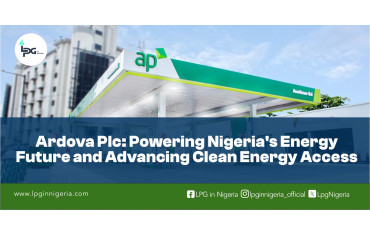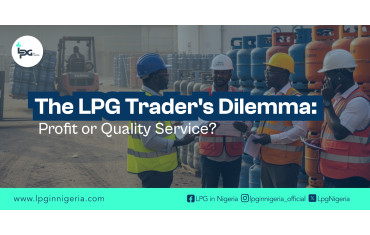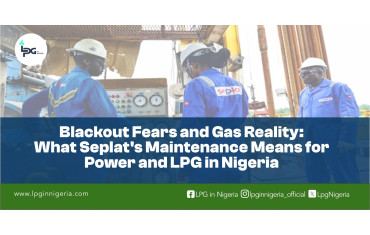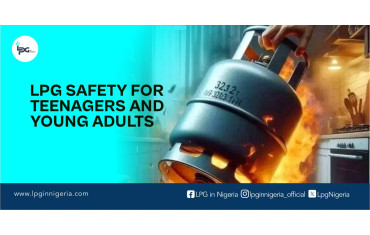- 6478
- 1
Sharing Ideas and Updates on LPG in Nigeria and related information to enable effective collaboration within the LPG Value Chain
Safety Practices For Cooking Gas Usage At Home.

The Standards Organisation of Nigeria (SON) holds a pivotal role as the regulatory authority responsible for establishing and enforcing quality and safety standards for a wide array of products and services within Nigeria. Established through the Standards Organisation of Nigeria Act of 2015, SON plays a fundamental role in ensuring that products and services in the Nigerian market adhere to stringent quality, safety, and reliability criteria. One of its important functions includes the regulation of LPG (Liquefied Petroleum Gas) cylinders to ensure they meet the highest safety standards and to prevent the use of expired LPG cylinders. Additionally, the Nigerian Midstream Downstream Petroleum Regulatory Authority (NMDPRA) also contributes to the oversight of LPG-related products to ensure they meet the necessary standards for public use.
However, this blog post focuses on a more specific aspect of LPG usage, namely, the safety practices that end-users, particularly those who use LPG for cooking, should adhere to. Think of it as a form of 'first aid' guidance in case of any accidents or emergencies. We strongly recommend that our readers, before purchasing an LPG cylinder, seek information and guidance from experts on safety practices. The more knowledge and awareness individuals possess about safely using LPG, the better prepared they are to prevent accidents and respond effectively in case of any untoward incidents. Safety is of paramount importance when it comes to LPG usage, especially in residential areas.
Using cooking gas (Liquefied Petroleum Gas or LPG) at home is common and convenient, but it requires strict adherence to safety practices to prevent accidents and ensure the well-being of your household. Here's a detailed overview of safety practices for using cooking gas at home:
Proper Installation: Ensure that your LPG system is installed by a licensed and qualified technician. The gas cylinder, hoses, and regulators should be in good condition, without any visible damage or signs of wear and tear. Additionally, check for proper ventilation in your kitchen to allow any gas leaks to dissipate.
Gas Cylinder Position: Place the gas cylinder in an upright position on a stable and level surface. Avoid leaving it in a confined or cramped space that restricts ventilation.
Regular Inspections: Periodically inspect the entire gas system, including hoses and connections, for any signs of damage or leaks. If you notice cracks, corrosion, or gas odors, it's essential to address them immediately.
Gas Leak Detection: Familiarize yourself with the smell of LPG, which is artificially odorized to be easily detectable. If you ever detect a strong gas odor, turn off the gas supply immediately, open doors and windows to ventilate the area, and avoid creating sparks or flames. Do not operate electrical switches or appliances in the vicinity.
Proper Storage: Store spare gas cylinders in a cool, well-ventilated, and dry area, away from direct sunlight and heat sources. Avoid keeping them in basements or crawl spaces. Always use gas cylinders in the order they were purchased to prevent the buildup of pressure in older cylinders.
Regulator and Hose Inspection: Regularly check the condition of the gas regulator and hoses. Ensure that the hoses are not twisted or kinked, and the regulator's diaphragm is functioning correctly. Leaking regulators or hoses should be replaced immediately.
Safe Ignition: When lighting the gas stove, always use a long-stemmed lighter or matchstick to ignite the burner. Never attempt to ignite the stove if you smell gas; instead, address the leak first.
Proper Cookware: Use cookware with flat and stable bottoms to prevent accidental spills and tip-overs. Handles of pots and pans should be turned inward and away from the edge of the stove to prevent them from being knocked off.
Children and Pets: Keep children and pets away from the cooking area while the stove is in use. Avoid leaving them unsupervised in the kitchen.
Fire Extinguisher: It's wise to have a fire extinguisher in your kitchen and know how to use it. In the event of a fire, first turn off the gas supply, and then use the fire extinguisher if the fire is small and manageable.
Emergency Procedures: Develop a family emergency plan that includes actions to be taken in case of a gas leak or fire. Ensure that all family members understand the plan and practice it regularly.
Regular Maintenance: Arrange for professional maintenance and servicing of your gas system at least once a year. This includes checking for gas leaks, verifying the integrity of connections, and ensuring that safety devices, such as pressure relief valves, are in proper working order.
By following these safety practices, you can enjoy the convenience of cooking with gas at home while minimizing the risks associated with its use. Safety should always be a top priority to protect yourself and your loved ones.
Did you think we missed out on some important safety practices? If so, then comment below, as we enjoy responses from you.
Also, remember to visit our LPG forum to share opinions with like-minded people in the business of gas
















Pastor William E Okon
06 January 2025 - 06:37pmThank you so much for this. I appreciate you God bless you.
Reply